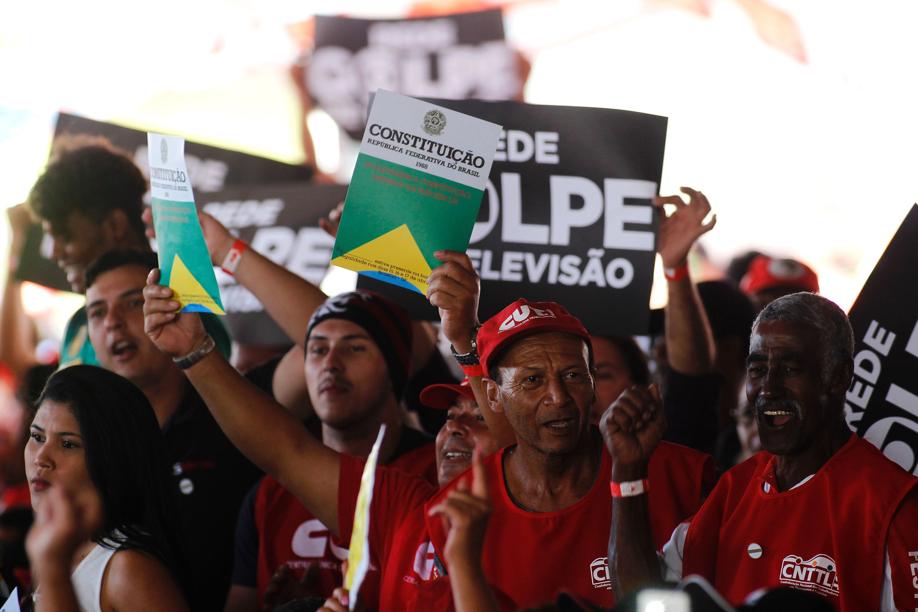
BRASÍLIA — The wall, nearly a mile of corrugated metal, plunges down the center of the majestic lawn that faces Brazil’s National Congress, the modernist icon designed by Oscar Niemeyer.
It was hastily erected in recent days, and is meant to separate the hundreds of thousands of protesters expected to descend on Brasília, the Brazilian capital, this weekend as members of Congress vote on whether to begin impeachment proceedings against President Dilma Rousseff.
The left side of the wall, facing Congress, is reserved for supporters of the left-leaning Rousseff, the right for people demanding her ouster.
“It’s not pretty, but the wall is necessary to keep the two sides from tearing each other apart,’’ a 21-year-old police officer in head-to-toe riot gear said as she stood in the searing sun Friday afternoon. “When these protesters come together, they behave like soccer hooligans.’’
Brazilian politics is a blood sport in the best of times, but the battle over Rousseff’s impeachment is inflaming passions as never before, cleaving families, turning friends into enemies, and transforming children into unwitting surrogates for the warring sides. Social media has been flooded with venom, and those who claim to be neutral often find themselves accused of treachery.
On the streets of Brazilian cities, political rallies organized by one side or the other have been devolving into shouting matches or worse, including a brawl last month in São Paulo that left a former city councilor with a bloody lip.
“I don’t think this will turn into a civil war, because you’d have to be stupid to fight for these politicians. But people are very stressed right now,’’ said Rafael Alcadipani da Silveira, 39, a professor of organizational studies at Fundação Getúlio Vargas, one of the country’s top universities. “I’ve never seen things this bad.’’
Political passions have turned ordinary sartorial decisions into perceived acts of provocation. Lauana de Lima Oliveira, 22, a saleswoman from São Paulo, recalled a recent day when she decided to go to work in a red tank top. Red is the color associated with Rousseff’s Workers’ Party.
As she rode in a crowded subway car, several passengers began to elbow her while hissing “petralha,’’ a pejorative for party stalwarts. De Lima Oliveira, who said she was agnostic on the impeachment drive, was stunned.
“People have become like horses that wear blinders so they can’t see anything on either side of them,’’ she said. “Red happens to be my favorite color, and I’m not going to stop wearing it.’’
In the southern city of Porto Alegre, Ariane Leitão, a surrogate councilwoman with the Workers’ Party, filed a formal complaint against her longtime pediatrician who, citing Leitão’s party affiliation, abruptly cut off ties.
Though it sometimes feels as if all of Brazilian society is consumed by the machinations in Brasília, those who study the growing polarization say much of the fury is confined to older, middle-class professionals.



